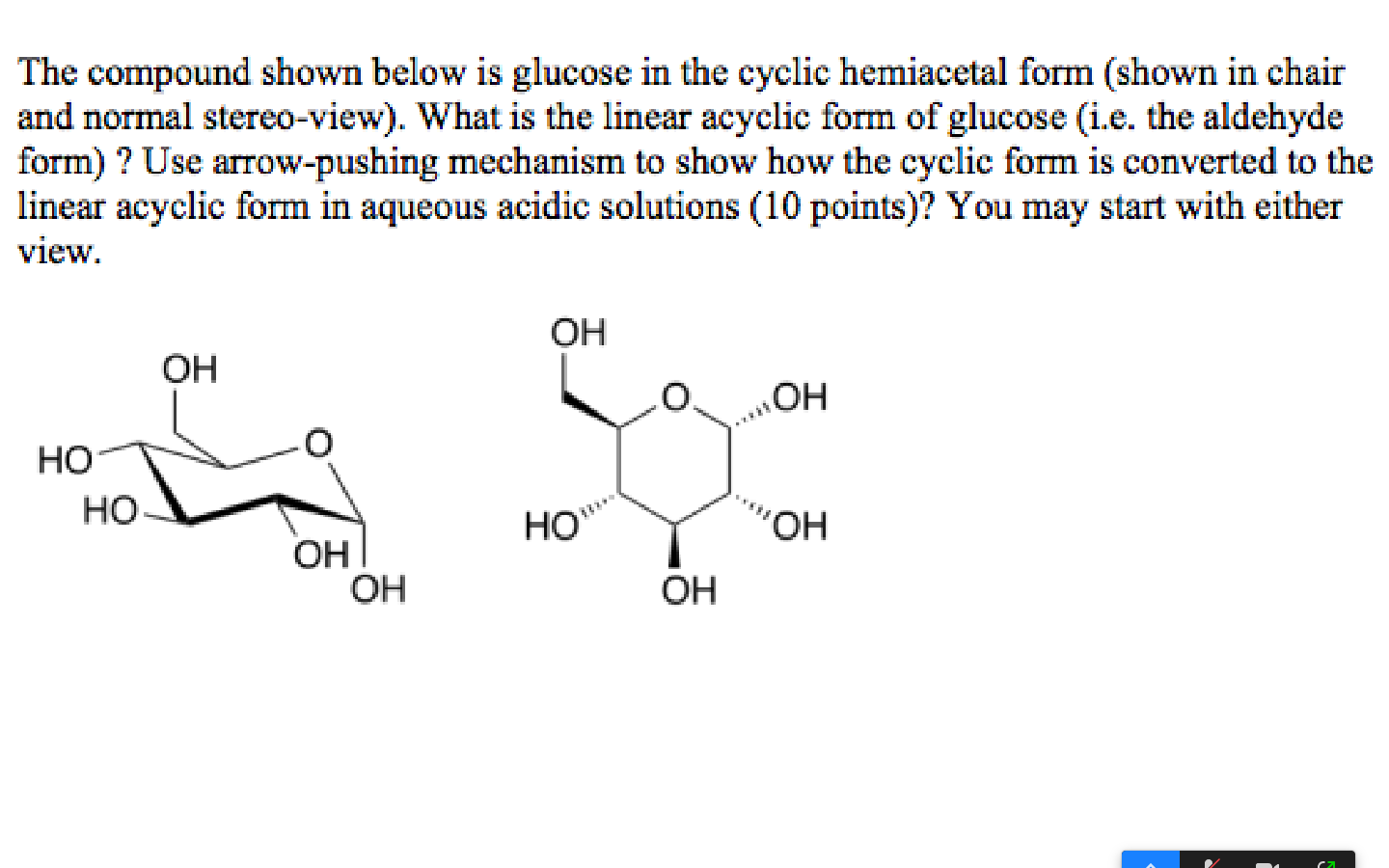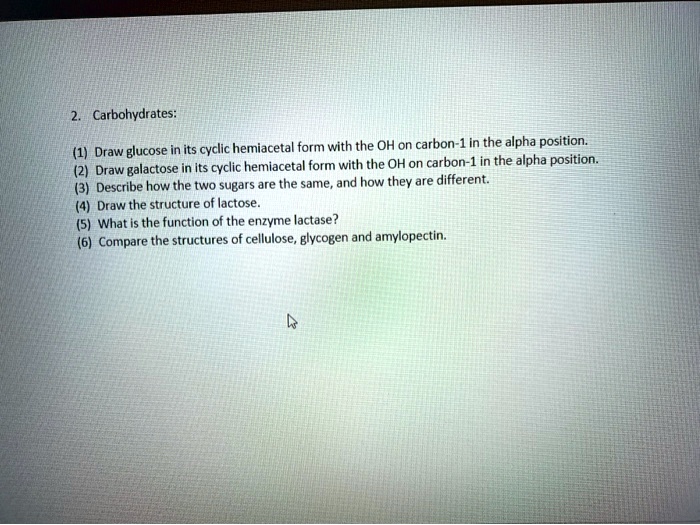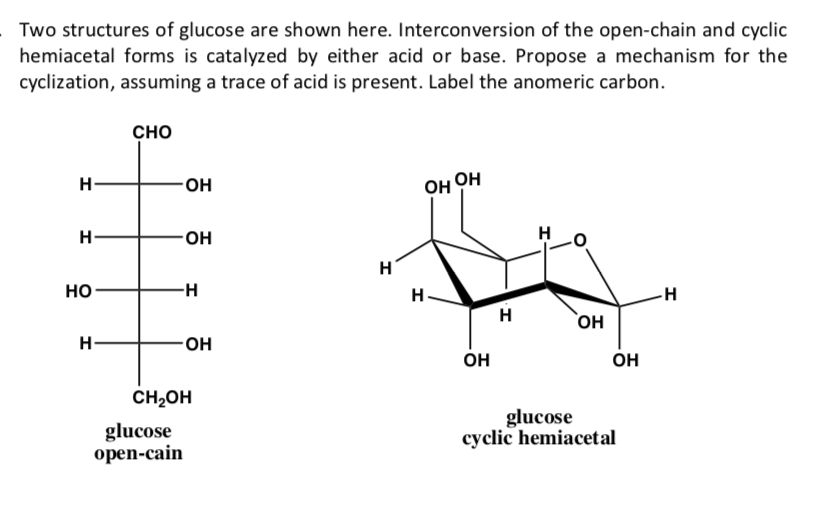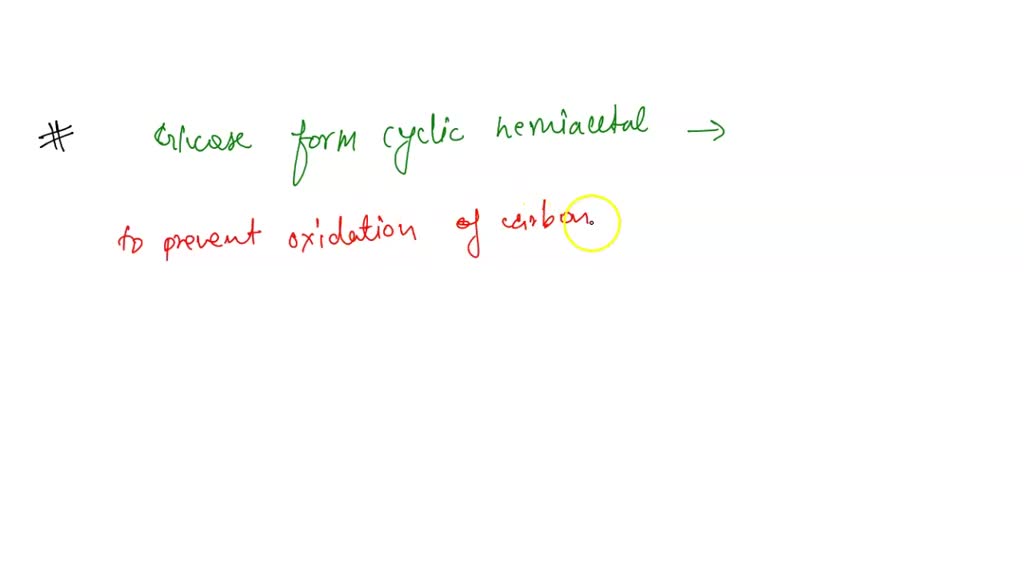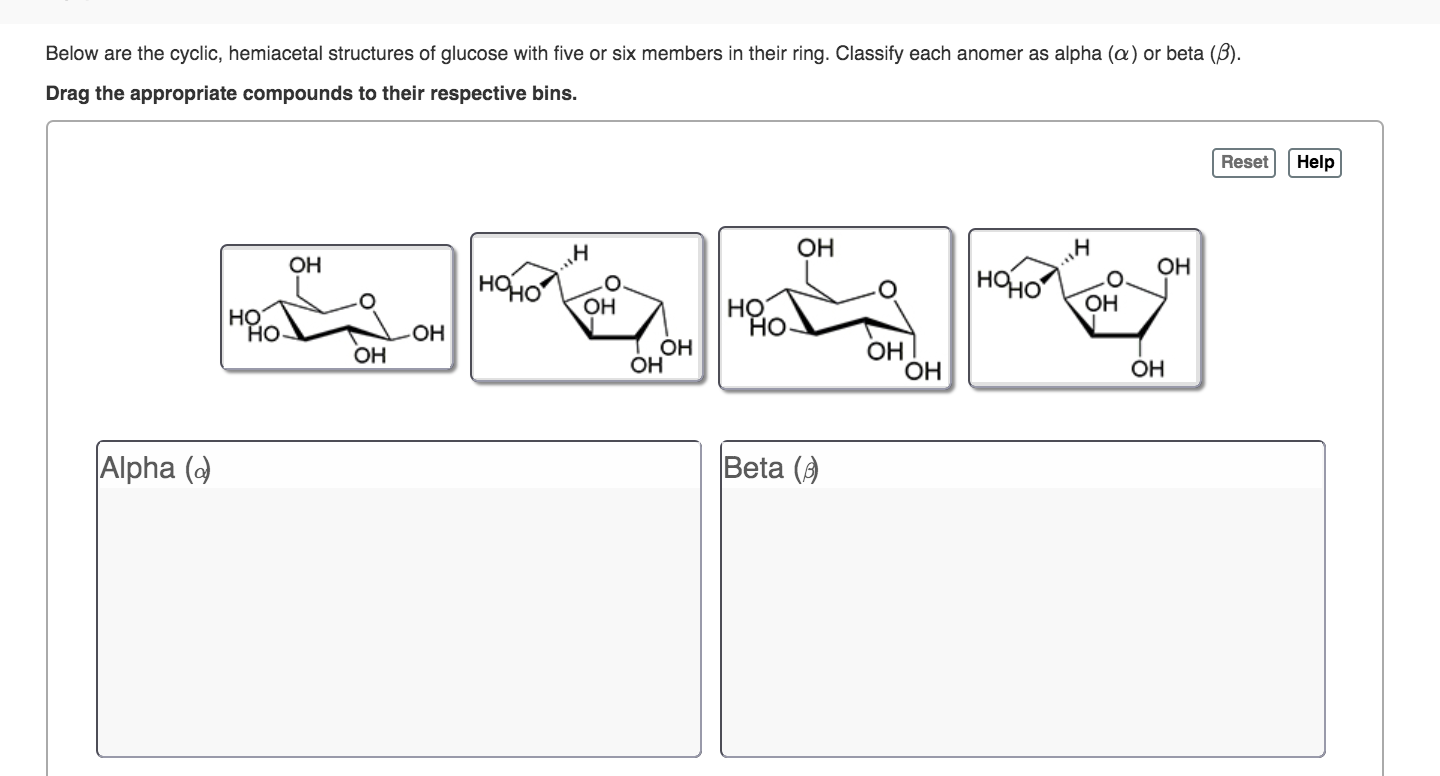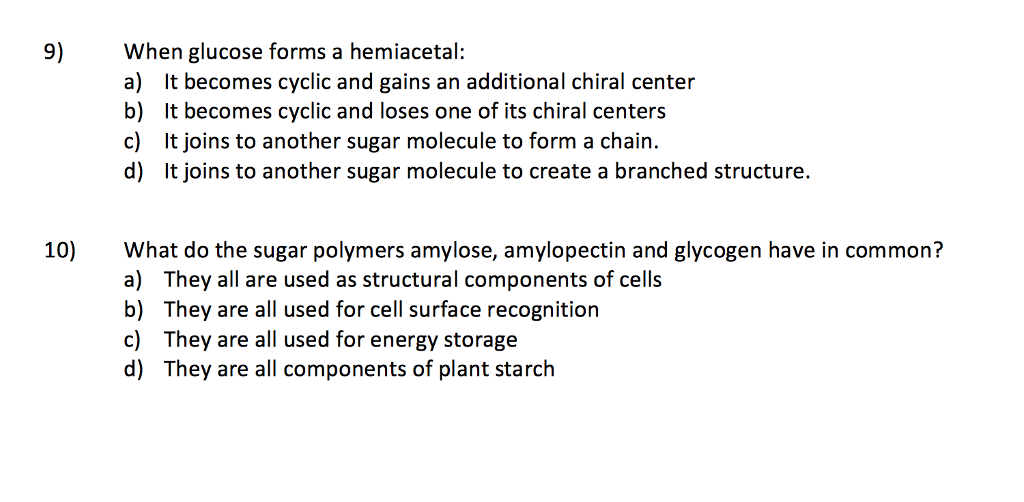Glucose Forms A Cyclic Hemiacetal
Glucose Forms A Cyclic Hemiacetal - Intramolecular hemiacetal formation is common in sugar chemistry. The first carbon atom (c1), which is an aldehyde. The sugar fructose is an isomer of glucose. Like glucose, fructose forms a cyclic hemiacetal,. Most simple carbohydrates exist predominantly as cyclic hemiacetals. The size of the cyclic hemiacetal ring adopted by a given sugar is not constant, but may vary with.
Intramolecular hemiacetal formation is common in sugar chemistry. The first carbon atom (c1), which is an aldehyde. Like glucose, fructose forms a cyclic hemiacetal,. The size of the cyclic hemiacetal ring adopted by a given sugar is not constant, but may vary with. The sugar fructose is an isomer of glucose. Most simple carbohydrates exist predominantly as cyclic hemiacetals.
The first carbon atom (c1), which is an aldehyde. The size of the cyclic hemiacetal ring adopted by a given sugar is not constant, but may vary with. The sugar fructose is an isomer of glucose. Like glucose, fructose forms a cyclic hemiacetal,. Most simple carbohydrates exist predominantly as cyclic hemiacetals. Intramolecular hemiacetal formation is common in sugar chemistry.
Solved Complete glucose in its hemiacetal, cyclic form,
Like glucose, fructose forms a cyclic hemiacetal,. The first carbon atom (c1), which is an aldehyde. The size of the cyclic hemiacetal ring adopted by a given sugar is not constant, but may vary with. Most simple carbohydrates exist predominantly as cyclic hemiacetals. The sugar fructose is an isomer of glucose.
Solved Glucose Generally Exists Greater Than 99 In The C...
The size of the cyclic hemiacetal ring adopted by a given sugar is not constant, but may vary with. The first carbon atom (c1), which is an aldehyde. The sugar fructose is an isomer of glucose. Most simple carbohydrates exist predominantly as cyclic hemiacetals. Intramolecular hemiacetal formation is common in sugar chemistry.
Solved The compound shown below is glucose in the cyclic
Intramolecular hemiacetal formation is common in sugar chemistry. Most simple carbohydrates exist predominantly as cyclic hemiacetals. Like glucose, fructose forms a cyclic hemiacetal,. The first carbon atom (c1), which is an aldehyde. The sugar fructose is an isomer of glucose.
SOLVED Carbohydrates cyclic , hemiacetal form with the OH on carbon
The size of the cyclic hemiacetal ring adopted by a given sugar is not constant, but may vary with. The sugar fructose is an isomer of glucose. Like glucose, fructose forms a cyclic hemiacetal,. The first carbon atom (c1), which is an aldehyde. Intramolecular hemiacetal formation is common in sugar chemistry.
Solved Two structures of glucose are shown here.
The sugar fructose is an isomer of glucose. The first carbon atom (c1), which is an aldehyde. The size of the cyclic hemiacetal ring adopted by a given sugar is not constant, but may vary with. Like glucose, fructose forms a cyclic hemiacetal,. Intramolecular hemiacetal formation is common in sugar chemistry.
Assertion Glucose does not give 2,4 DNP test.Reason Glucose exists in
Intramolecular hemiacetal formation is common in sugar chemistry. Like glucose, fructose forms a cyclic hemiacetal,. The size of the cyclic hemiacetal ring adopted by a given sugar is not constant, but may vary with. Most simple carbohydrates exist predominantly as cyclic hemiacetals. The sugar fructose is an isomer of glucose.
SOLVEDGlucose forms a cyclic hemiacetal in order to to prevent
Intramolecular hemiacetal formation is common in sugar chemistry. Most simple carbohydrates exist predominantly as cyclic hemiacetals. The size of the cyclic hemiacetal ring adopted by a given sugar is not constant, but may vary with. The first carbon atom (c1), which is an aldehyde. Like glucose, fructose forms a cyclic hemiacetal,.
Solved A) All carbohydrates are in cyclic hemiacetal forms.
The first carbon atom (c1), which is an aldehyde. Like glucose, fructose forms a cyclic hemiacetal,. The sugar fructose is an isomer of glucose. Most simple carbohydrates exist predominantly as cyclic hemiacetals. Intramolecular hemiacetal formation is common in sugar chemistry.
Solved Below are the cyclic, hemiacetal structures of
The sugar fructose is an isomer of glucose. The size of the cyclic hemiacetal ring adopted by a given sugar is not constant, but may vary with. Like glucose, fructose forms a cyclic hemiacetal,. Intramolecular hemiacetal formation is common in sugar chemistry. Most simple carbohydrates exist predominantly as cyclic hemiacetals.
Solved 9 When glucose forms a hemiacetal a) It
The sugar fructose is an isomer of glucose. The size of the cyclic hemiacetal ring adopted by a given sugar is not constant, but may vary with. Like glucose, fructose forms a cyclic hemiacetal,. Most simple carbohydrates exist predominantly as cyclic hemiacetals. The first carbon atom (c1), which is an aldehyde.
Like Glucose, Fructose Forms A Cyclic Hemiacetal,.
The size of the cyclic hemiacetal ring adopted by a given sugar is not constant, but may vary with. The first carbon atom (c1), which is an aldehyde. The sugar fructose is an isomer of glucose. Intramolecular hemiacetal formation is common in sugar chemistry.


